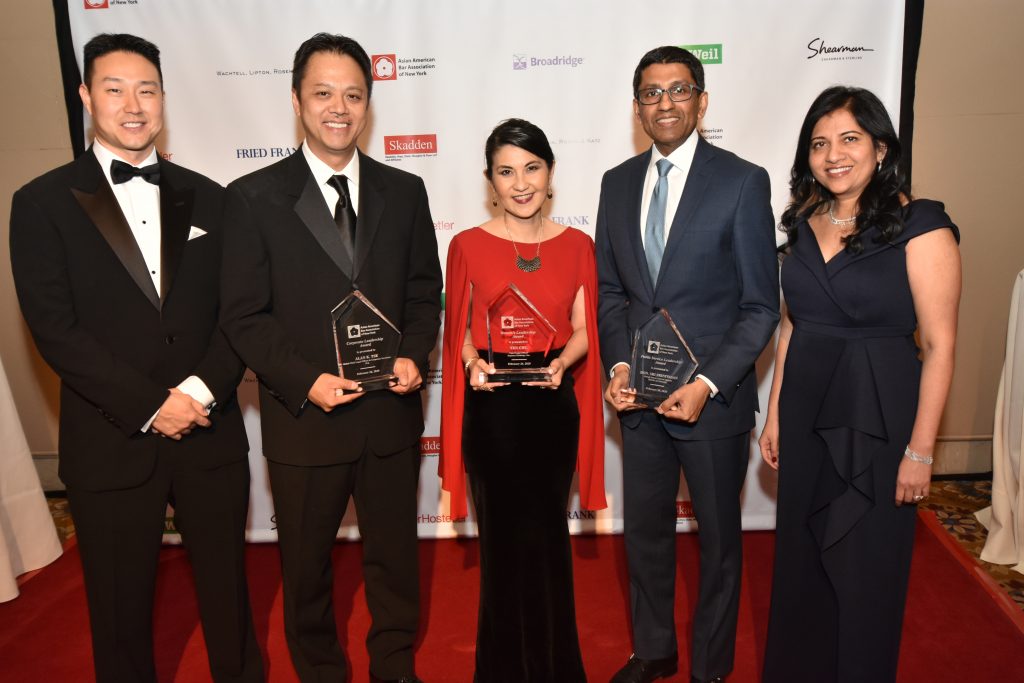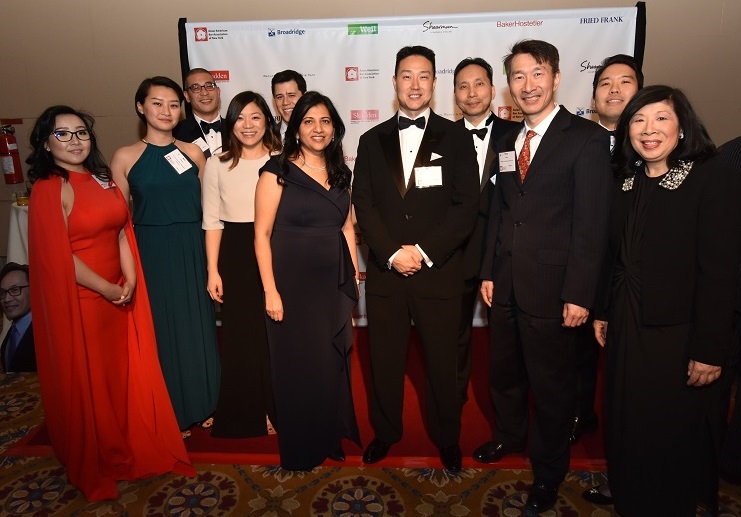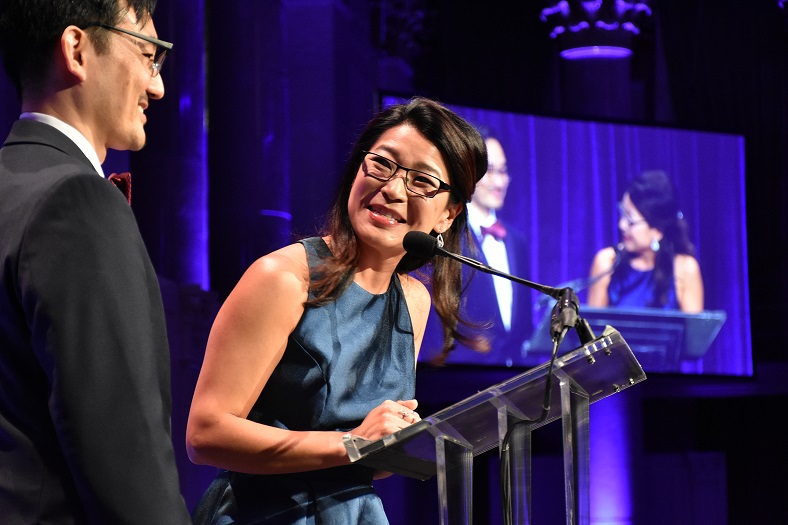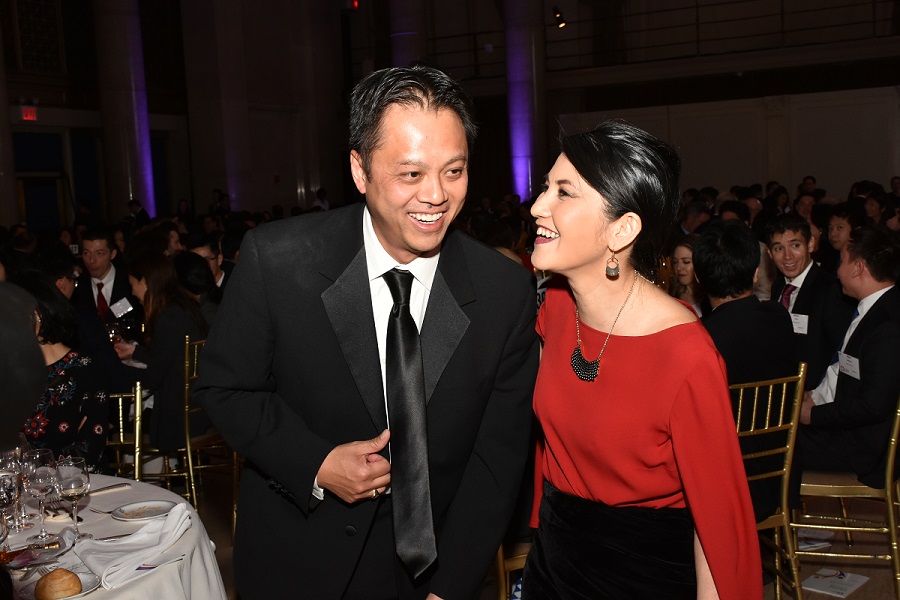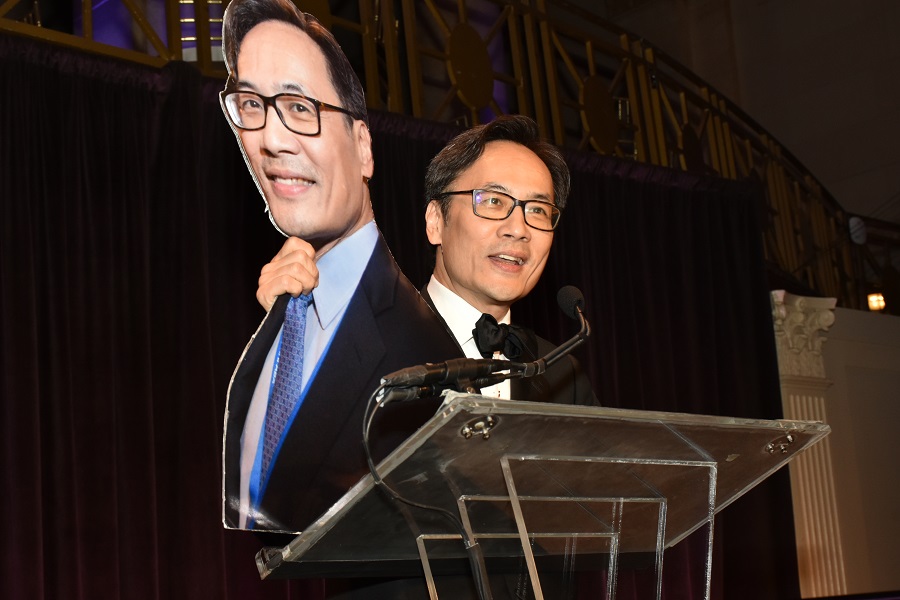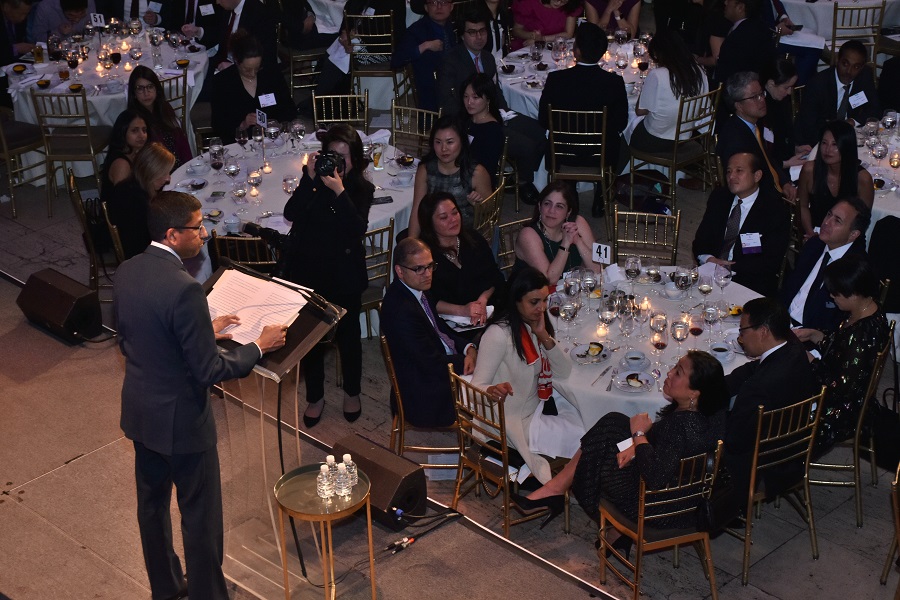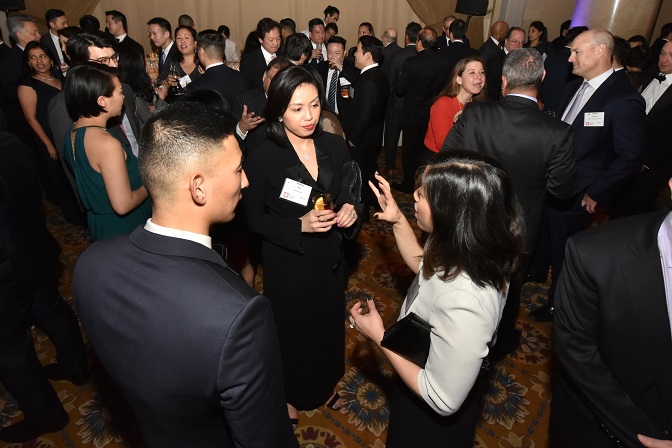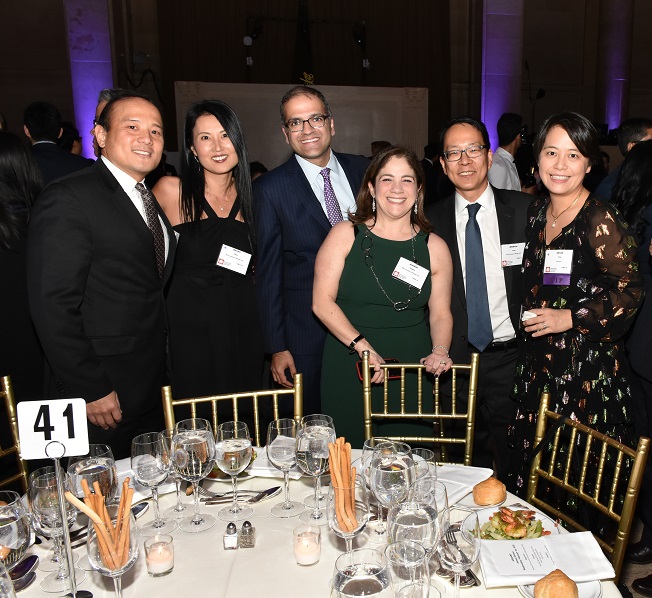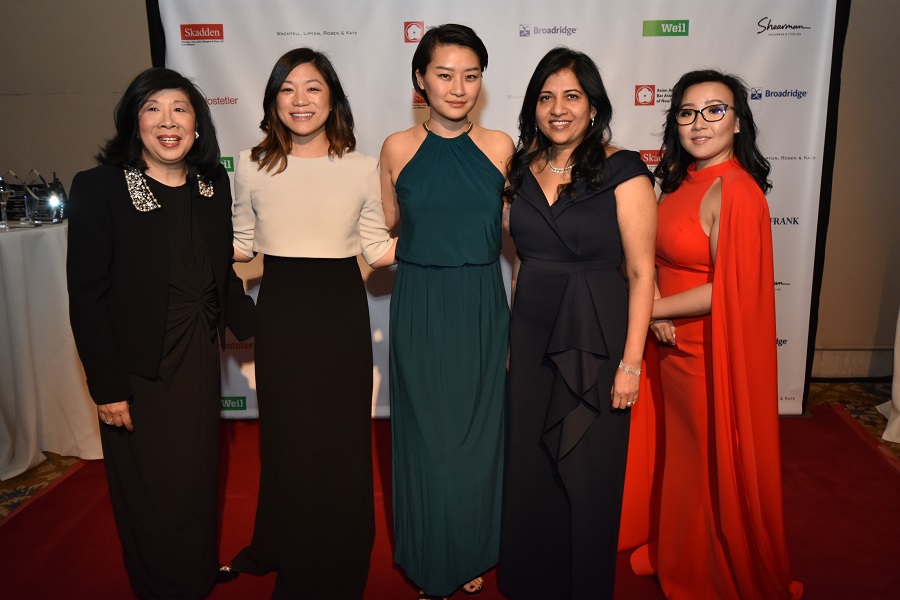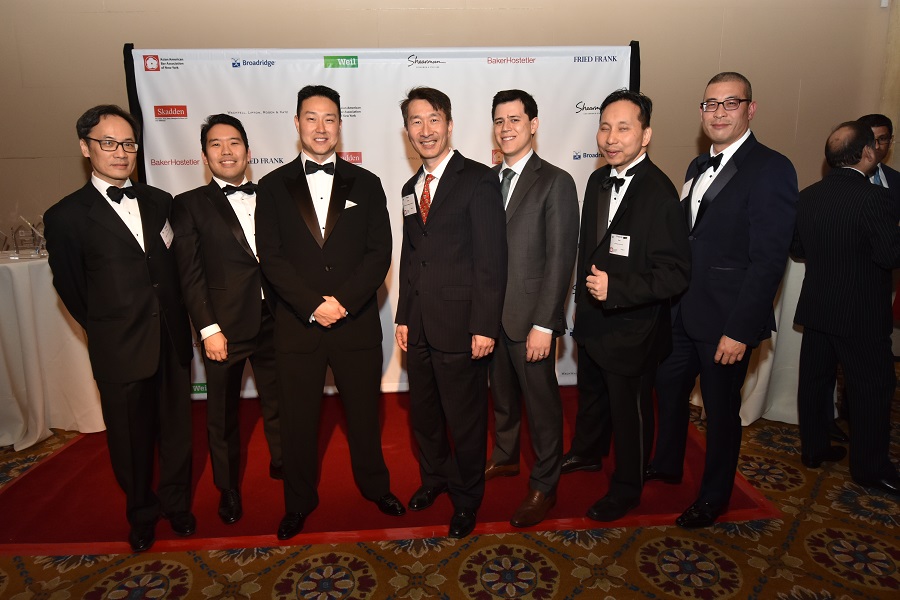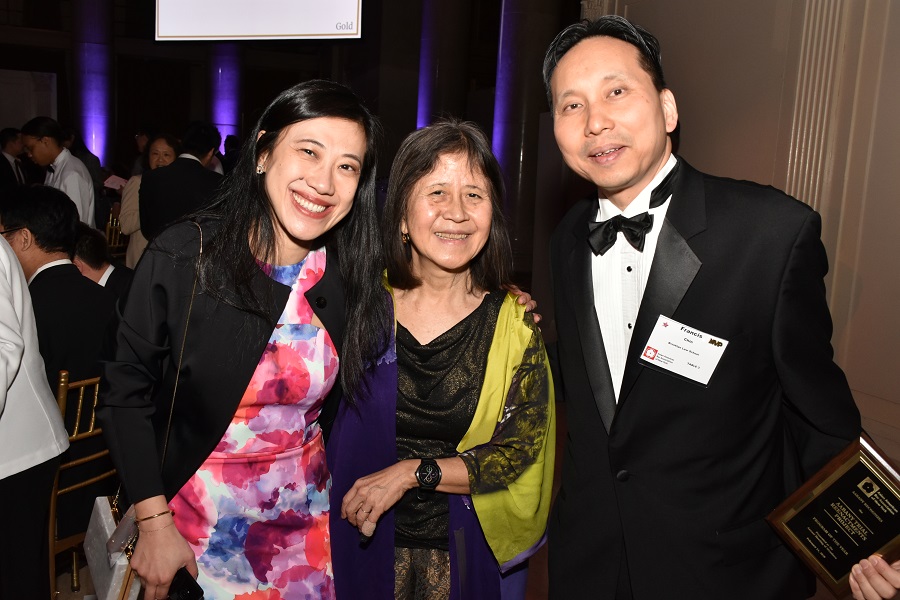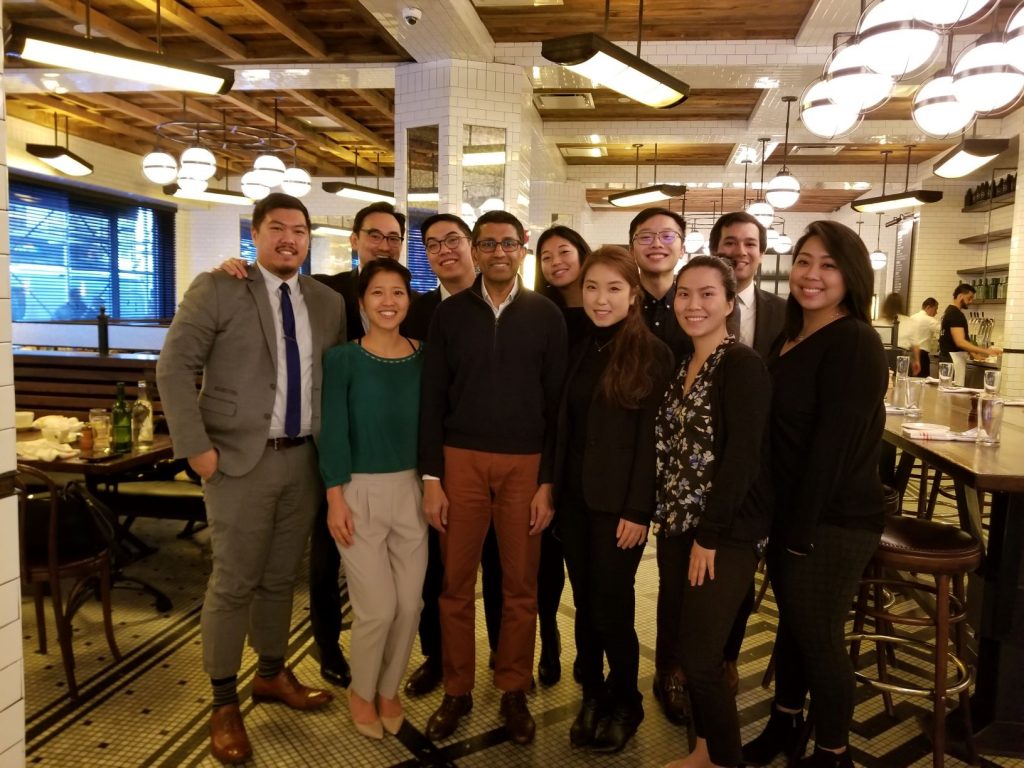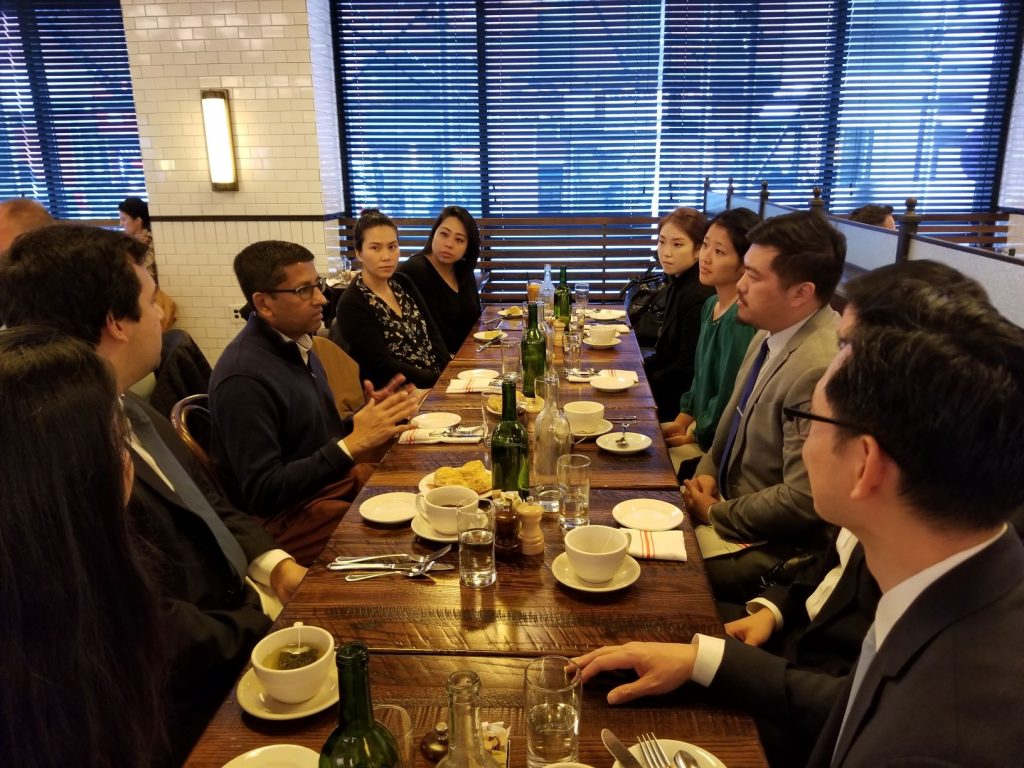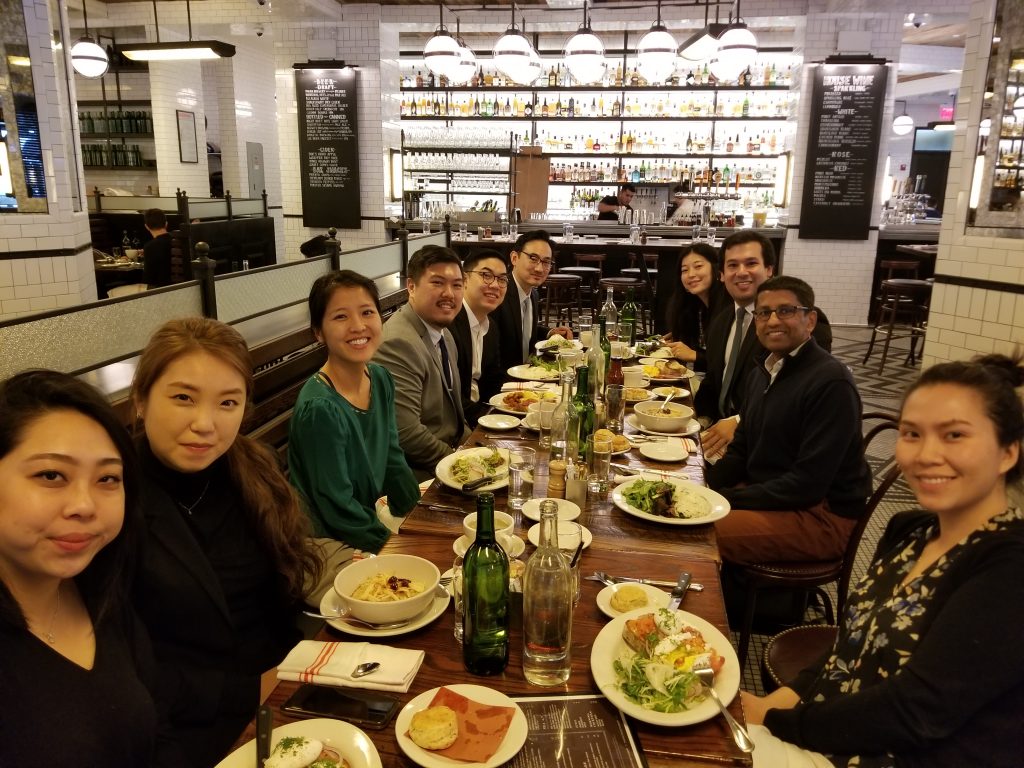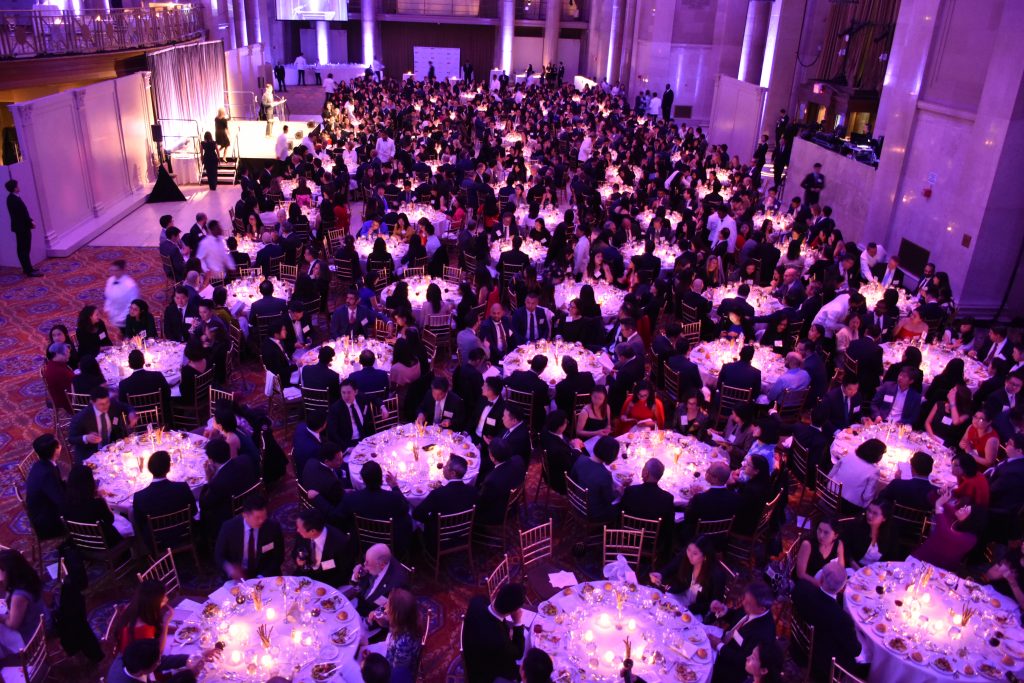
On Wednesday, February 26, 2020, AABANY hosted its 2020 Annual Dinner with the theme “Stronger Together: Unity in Diversity” at Cipriani Wall Street. The dinner attracted over 800 attorneys, judges, prosecutors, in-house counsel, government officials, and dignitaries and sponsorships from more than 60 law firms and corporations.
This year AABANY was proud to honor:
Hon. Sri Srinivasan, United States Court of Appeals for the District of Columbia, with the Public Interest Leadership Award.
Alan Tse, Global Chief Legal Officer, Jones Lang LaSalle, Inc., with the Corporate Leadership Award
Yen Chu, Chief Legal Officer, Equinox Holdings, Inc., with the Women’s Leadership Award
Skadden, Arps, Slate, Meagher & Flom LLP with the Law Firm Diversity Award
To read more about our extraordinary honorees, read the press release here.
This year, Spectrum NY1 News Anchor Vivian Lee served as MC and was joined on stage by Immediate Past President James Cho.
James presented each of the honorees with special gifts from AABANY. Noting that Alan Tse was considered by his peers to be “The Closer,” James presented him with a bottle of McCallan, a nod to Attorney Harvey Specter from “Suits,” another well-known “Closer.” However, because Alan had to fly back to Chicago, the full-size bottle was replaced with a miniature size, with a ziploc bag that will ensure the bottle gets through security. (We have a feeling that the bottle was consumed well before Alan made it to the airport.)
For Yen Chu, James presented her with a monogrammed workout head towel for her next session at one of Equinox’s many gyms. That is one way to make sure that AABANY is “top of mind” for Yen in the days to come. Finally, for Chief Judge Srinivasan, we figured that as a jurist, he can never have too many robes, so James presented him a wizard’s robe, bearing his name above the Gryffindor crest. Although we doubt we will see Chief Judge Srinivasan wearing that robe on the bench any time soon, we can imagine him donning the robe in chambers, especially on those occasions where he may need to work some judicial wizardry to decide the most difficult cases.
In addition, we were also pleased to present the 2019 class of Don H. Liu Scholars: Grace Cho, Raymond Magsaysay, and Andrew Tran. To read more about the Don H. Liu Scholars, see our press release here.
Congratulations also to the Pro Bono and Community Service Committee. The Pro Bono Clinic was recognized with the New York State Bar Association Bar Leaders Innovation Award. NYSBA President Hank Greenberg attended the Annual Dinner to present the award. To read more about the award, see our press release here.
We thank all of the AABANY Annual Dinner Planning Committee members and volunteers for their hard work in making this year’s celebration a huge success.
We extend sincere thanks to all of our sponsors. Their generous sponsorships make it possible for us to pursue our mission to advance the interests of the Asian Pacific American (APA) legal community and the communities we serve and support our many activities and signature events throughout the year.
Lastly, we thank everyone that attended the 2020 Annual Dinner and celebrated with us.
Thanks to Corky Lee for the photos in this blog post. More photos to come. Stay tuned!
